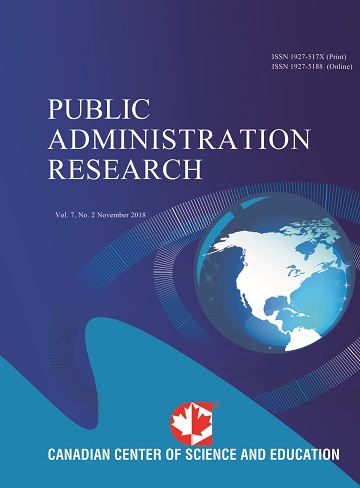Poverty and Crimes in Nigeria: Indices of Governance Failure
- Adeleke Adegbami
- Charles I. N. Uche
Abstract
Poverty and means of survival has contributed in no small measure to the level of crimes being committed in Nigeria. In our contemporary time, the rate at which crimes are being perpetrated in Nigeria is unparalleled. The nation’s problem is not unconnected with weakness in its administrative system; where a few powerful cliques hijacked the administrative apparatus to serve their interests to the detriments of the citizenry. Accordingly, widespread impunity became prevalence among the government actors, corruption thrives, and disease germinates, poverty blossoms, crime breeds, and permeated the nooks and crannies of the nation. The nation’s Managers responded to the problem by cosmeticizing the nation’s image with the slogan – “Nigerians, good people great nation” a negation or aberration of the popular saying – “a hungry man is an angry man”; instead of giving good governance to the citizenry. It is on this note that the study examined the nexus between poverty and crimes in Nigeria. The study relied heavily on secondary sources of data. The findings of the study revealed that there was correlation between unemployment and criminal practices; many of the youths engaged in crime, to keep their bodies and souls together. The findings also revealed that lack of good governance, vis-a-vis committed; competent; and visionary leadership has contributed to the situation in which Nigerian’s youths find themselves; which had earned them names such as – bunkers, hooligans, kidnappers or hostages’ taker, internet fraudsters, drug peddlers, and prostitutes. These nefarious activities have led many of them into Prison. The implications of crimes and criminal activities on Nigeria and Nigerians included – psychological trauma on victims, victims’ relations, and people within the areas of crimes. Some victims suffer loss of vital organs or parts of their bodies; permanent disability; or even premature death, which consequently, turning members of the society into orphans, widows and widowers. Crimes and criminal activities also brought about, lower quality of life; loss of incomes; properties; relocation or closure of businesses and markets; increase in security budget; and damage in the image of the country. The study concluded that, since Nigeria’s leaders appear incapable of providing appropriate solution to the menace, expatriate could as well be hired as it has being done to other business activities of Nigeria.- Full Text:
 PDF
PDF
- DOI:10.5539/par.v5n1p37
Journal Metrics
h-index (2017): 7
i10-index (2017): 6
h5-index (2017): 7
h5-median (2017): 13
Index
- COPAC
- CrossRef
- DTU Library
- EBSCOhost
- EuroPub Database
- Excellence in Research for Australia (ERA)
- Genamics JournalSeek
- Ghent University Library
- Google Scholar
- Harvard Library
- Infotrieve
- Jisc Library Hub Discover
- LOCKSS
- Mir@bel
- Norwegian Centre for Research Data (NSD)
- Open J-Gate
- PKP Open Archives Harvester
- Publons
- ROAD
- Scilit
- SHERPA/RoMEO
- Stanford Libraries
- Ulrich's
- UniCat
- Universe Digital Library
- UoS Library
- WorldCat
Contact
- Gabriel TaiEditorial Assistant
- par@ccsenet.org
